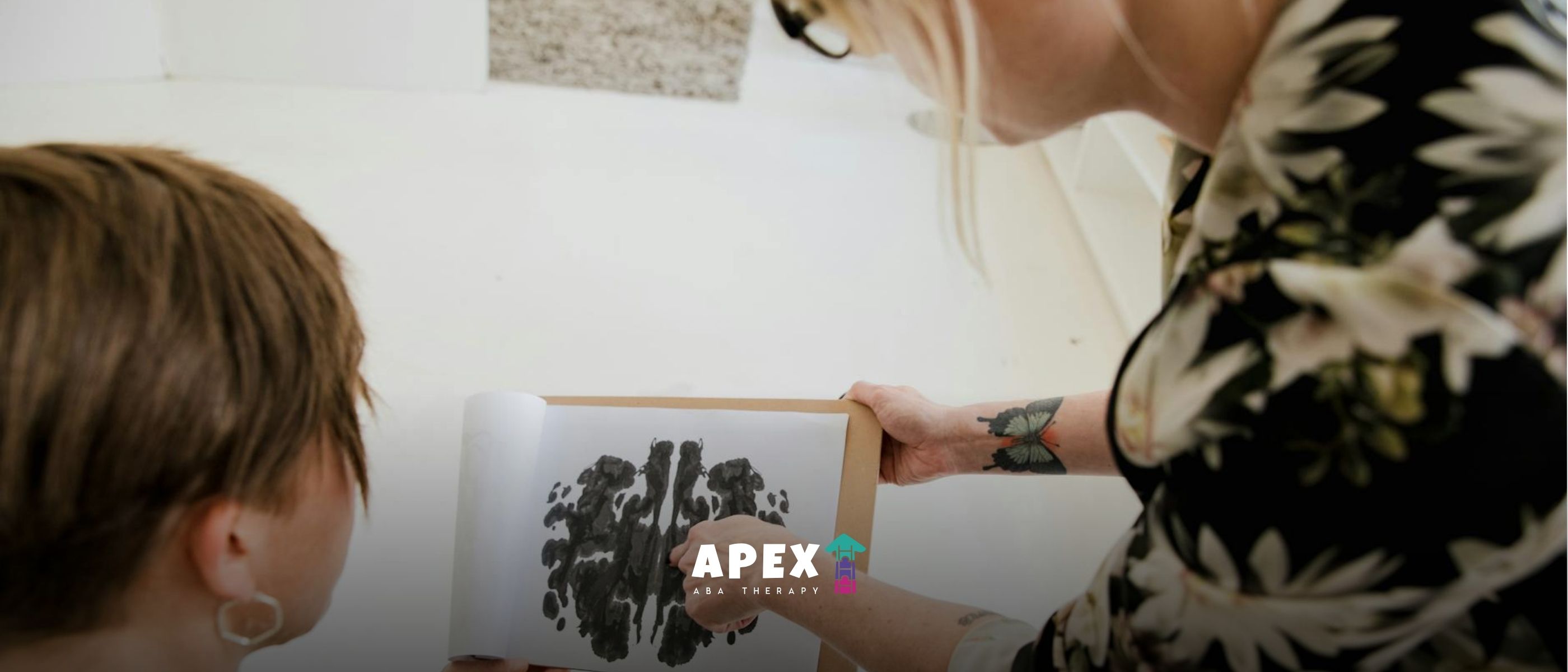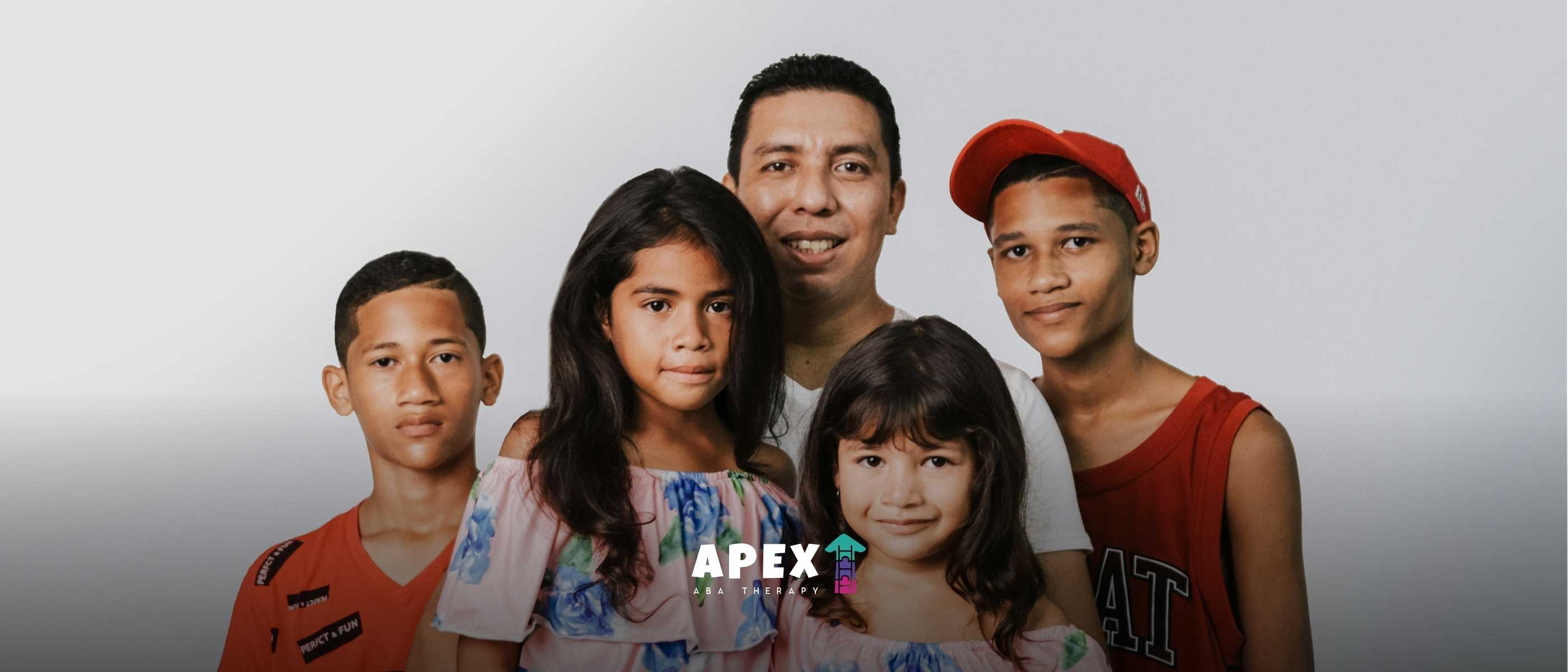Bullying and Autism: An Unfortunate Connection
Unfortunately, studies have shown that autistic children are at a higher risk of being bullied than their neurotypical peers. In fact, research has found that over 63% of autistic children have experienced bullying at some point in their lives.
.jpg)
Bullying and Autism: An Unfortunate Connection
Bullying and Autism
Introduction to Bullying and Autism
Bullying is a prevalent issue that affects individuals from various backgrounds and walks of life. However, research has shown that individuals with autism are particularly vulnerable to bullying. Autism, a developmental disorder characterized by difficulties in social interaction and communication, presents unique challenges that can make individuals more susceptible to bullying.

Understanding the Link between Bullying and Autism
The connection between bullying and autism is multifaceted. Several factors contribute to the increased vulnerability of individuals with autism to bullying. Understanding these factors is crucial in addressing the issue effectively.
One contributing factor is the social communication difficulties faced by individuals with autism. Challenges in understanding and interpreting social cues, as well as difficulties in forming friendships, can make them targets for bullying. The differences in social interaction and communication styles may lead to misunderstandings and exclusion, further exacerbating the risk of being bullied.
Sensory sensitivities also play a role in the vulnerability of individuals with autism to bullying. Many individuals with autism experience heightened sensitivities to sensory stimuli, such as loud noises or certain textures. These sensitivities can make them more susceptible to bullying tactics that involve sensory overload or deliberate attempts to provoke distress.
Additionally, the differences in social cues and understanding can make it challenging for individuals with autism to discern and respond appropriately to bullying situations. They may struggle to identify when they are being mistreated or may have difficulty expressing their feelings and seeking help.
It is important to note that the impact of bullying on individuals with autism extends beyond immediate emotional distress. The long-term consequences can include decreased self-esteem, anxiety, depression, and even a decline in academic performance.
Raising awareness about the unfortunate connection between bullying and autism is crucial in promoting understanding and empathy. By recognizing the unique challenges faced by individuals with autism, we can work towards creating inclusive and supportive environments.
By shedding light on the link between bullying and autism, we can take important steps in preventing bullying and ensuring the well-being of individuals with autism.

Challenges Faced by Individuals with Autism
Individuals with autism face unique challenges that can contribute to their vulnerability to bullying. Understanding these challenges is essential in addressing the issue effectively. Here are three key challenges faced by individuals with autism: social communication difficulties, sensory sensitivities, and differences in social cues and understanding.
Social Communication Difficulties
One of the primary challenges individuals with autism encounter is social communication difficulties. They may have difficulty understanding and using verbal and nonverbal cues, such as tone of voice, facial expressions, and body language.
This can make it challenging for them to interpret social interactions accurately and respond appropriately. As a result, they may struggle to establish meaningful connections and friendships, leaving them more susceptible to bullying.
Sensory Sensitivities
Sensory sensitivities are also prevalent among individuals with autism. They may experience heightened sensitivity to sensory stimuli, such as loud noises, bright lights, or certain textures.
These sensitivities can be overwhelming and cause distressing reactions. In environments where bullying may occur, such as crowded hallways or noisy classrooms, individuals with autism may feel particularly vulnerable. Their sensory sensitivities can impact their ability to navigate these environments effectively and defend themselves against bullying.
Differences in Social Cues and Understanding
Individuals with autism often have difficulty understanding and interpreting social cues. They may struggle to grasp unwritten social rules, norms, and expectations. This can lead to misunderstandings and miscommunication, making it harder for them to navigate social situations. Peers may perceive these differences as unusual or strange, potentially leading to social exclusion and bullying.
Understanding the challenges faced by individuals with autism provides crucial insights into why they are more susceptible to bullying. By recognizing and addressing these challenges, we can work towards creating a more inclusive and supportive environment for individuals with autism.
Through increased awareness and education, we can foster an environment that promotes acceptance, understanding, and kindness towards individuals with autism. In the following sections, we will explore strategies to raise autism awareness, create supportive environments, and address bullying effectively. Together, we can make a positive impact and ensure a safer and more inclusive future.
Vulnerability to Bullying
Individuals with autism are at an increased risk of experiencing bullying due to various factors. Understanding these factors and the types of bullying they may face is crucial in addressing and preventing bullying among individuals with autism.
Factors Contributing to Increased Vulnerability
Several factors contribute to the increased vulnerability of individuals with autism to bullying. These factors include:
- Social Communication Difficulties: Individuals with autism often struggle with social communication skills, making it challenging for them to navigate social interactions effectively. This difficulty may lead to misinterpretation of social cues, difficulty in understanding social norms, and potential isolation, making them more susceptible to bullying.
- Sensory Sensitivities: Many individuals with autism experience sensory sensitivities. Sensory overload or discomfort from certain sensory stimuli can cause distress and impact their ability to cope with bullying situations. This vulnerability can be exploited by bullies who may intentionally target individuals with autism based on their sensory sensitivities.
- Differences in Social Cues and Understanding: Due to differences in social cognition and understanding, individuals with autism may struggle to recognize subtle social cues, sarcasm, or hidden intentions. This difficulty may make it harder for them to identify and avoid potentially harmful social situations, increasing their vulnerability to bullying.
Understanding these contributing factors can help parents, educators, and communities develop strategies to support and protect individuals with autism from bullying.
Types of Bullying Faced by Individuals with Autism
Individuals with autism may experience various forms of bullying. It is important to recognize and address these types of bullying to provide effective support. Some common types of bullying faced by individuals with autism include:
Recognizing and addressing these different types of bullying is crucial in creating a safe and supportive environment for individuals with autism. By promoting awareness and understanding, we can work towards preventing and addressing bullying among individuals with autism.
Impact of Bullying on Individuals with Autism
Bullying can have profound effects on individuals with autism, both emotionally and academically. Understanding these impacts is crucial in developing effective strategies to address bullying and support individuals with autism.
Emotional and Psychological Effects
Individuals with autism who experience bullying often face significant emotional and psychological challenges. The relentless nature of bullying can lead to increased anxiety, depression, and feelings of isolation. These individuals may also struggle with low self-esteem and a diminished sense of self-worth. It is important to address these emotional effects and provide appropriate support and intervention to help individuals cope with the negative impact of bullying.
Academic and Educational Impact
Bullying can also have a detrimental impact on the academic and educational progress of individuals with autism. The stress and anxiety caused by bullying can interfere with concentration, attention, and learning.
As a result, individuals may experience difficulties in academic performance, reduced motivation, and decreased engagement in school-related activities. It is crucial to create a safe and supportive learning environment that promotes inclusivity and addresses the academic challenges faced by individuals with autism.
Long-Term Consequences
The long-term consequences of bullying for individuals with autism can extend well into adulthood. Research indicates that individuals who have experienced bullying during their school years are at a higher risk of developing mental health issues, such as anxiety and depression, even in adulthood.
The negative impact of bullying can persist and affect various aspects of an individual's life, including relationships, employment opportunities, and overall well-being. By raising awareness of the long-term consequences of bullying on individuals with autism, we can work towards preventing and addressing this issue effectively.
To support individuals with autism who have experienced bullying, it is essential to provide a comprehensive approach that combines awareness, prevention, and intervention strategies.
Creating a supportive and inclusive environment, both at school and in the community, is crucial to minimize the risk of bullying and its impact on individuals with autism. Additionally, implementing strategies to address bullying and promote positive social interactions can play a vital role in ensuring the well-being and success of individuals with autism.
By understanding the emotional, academic, and long-term consequences of bullying on individuals with autism, we can work towards creating a more inclusive and supportive society that fosters the well-being and development of all individuals.
Raising Awareness and Taking Action
To address the unfortunate connection between bullying and autism, it is crucial to promote autism awareness, create supportive environments, and implement strategies to address bullying and support individuals with autism.
Promoting Autism Awareness
Promoting autism awareness is vital in fostering understanding and empathy within communities. By educating the general public about autism spectrum disorder (ASD), people can develop a better understanding of the unique challenges faced by individuals with autism. Awareness campaigns, community workshops, and educational programs play a significant role in disseminating accurate information about autism. These initiatives can help reduce misconceptions, stereotypes, and stigmatization, fostering a more inclusive and accepting society.
Creating Supportive Environments
Creating supportive environments is crucial for individuals with autism to thrive. Schools, workplaces, and community organizations should prioritize the development of inclusive practices that accommodate the unique needs of individuals with autism. This includes training staff and peers to understand autism, implementing sensory-friendly spaces, providing clear communication strategies, and promoting social inclusion. By creating environments that embrace neurodiversity and celebrate the strengths of individuals with autism, the risk of bullying can be significantly reduced.
Strategies to Address Bullying and Support Individuals with Autism
Addressing bullying and providing support to individuals with autism requires a multi-faceted approach. Some strategies that can be implemented include:
- Education and Training: Educating individuals with autism, their families, educators, and peers about bullying, its impact, and how to recognize and respond to it is essential. This can help empower individuals with autism to advocate for themselves and seek support when needed.
- Anti-Bullying Policies: Schools and organizations should have clear anti-bullying policies in place that explicitly address the unique vulnerabilities of individuals with autism. These policies should outline consequences for bullying behavior, provide reporting mechanisms, and ensure appropriate support and intervention for victims.
- Social Skills Training: Providing individuals with autism with social skills training can help them navigate social interactions more effectively, reducing the likelihood of being targeted by bullies. Teaching essential skills such as assertiveness, conflict resolution, and understanding social cues can empower individuals with autism to build meaningful relationships and develop a stronger sense of self-confidence.
- Peer Support Programs: Implementing peer support programs can create a sense of belonging and friendship for individuals with autism. Pairing them with neurotypical peers who can provide social support and help foster inclusive environments can be highly beneficial in reducing social isolation and the risk of bullying.
By raising awareness about autism, creating supportive environments, and implementing strategies to address bullying, we can work towards a society that values and embraces the unique strengths and challenges of individuals with autism. Through collective efforts, we can foster an inclusive and supportive community that ensures the well-being and safety of all individuals, regardless of their neurodiversity.
FAQs
Is it common for autistic children to be bullied?
Unfortunately, yes. Studies have shown that autistic children are at a higher risk of being bullied than their neurotypical peers. In fact, research has found that over 63% of autistic children have experienced bullying at some point in their lives.
How can I tell if my child is being bullied?
Look out for changes in behavior, mood, or eating habits. An autistic child may also become more withdrawn or avoid certain activities or places. If you suspect that your child is being bullied, it's important to take action. Talk to your child's teacher or school counselor about your concerns.
What can I do to help my child deal with bullying?
Teach your child strategies for dealing with bullying. For example, you can practice role-playing scenarios where your child learns to stand up for themselves or seek help from a trusted adult. It's also important to work with your child's school to develop a plan to address the bullying and protect your child.
Can bullying worsen existing symptoms of autism?
Yes, bullying can worsen existing symptoms of autism, such as repetitive behaviors and communication difficulties. Bullying can also lead to anxiety, depression, low self-esteem, and social withdrawal.
What should I do if my child responds to bullying in an atypical way?
It's important to understand that autistic children may be more likely to respond to bullying in an atypical way. For example, they may not understand the bully's intentions or react with extreme emotion. If this happens, try talking calmly with your child and helping them understand why the situation occurred and how they can respond next time.
Conclusion
Bullying is a serious issue that affects many children, including those with autism. As a parent or caregiver, it's important to be aware of the signs of bullying and take action to protect your child. By working with your child's school and teaching them strategies for dealing with bullying, you can help your child feel safe and supported.
Sources
Frequently Asked Questions
.jpg)
Autism And Bed Wetting: Unlocking Solutions
Explore the connection between autism and bedwetting and find practical insights and solutions for parents and caregivers. Discover how understanding and support can make a difference in managing this common challenge for children and individuals on the autism spectrum.

Proven Examples of Smart Goals for Students with Autism
Unlock the potential of students with autism through proven examples of SMART goals. Set them up for success!
.jpg)
What is the Sensory Processing Disorder ICD-10 Code?
If you or someone you know has been diagnosed with Sensory Processing Disorder (SPD), you may have heard of the ICD-10 code. In this article, we'll explain what the SPD ICD-10 code is, what it means, and why it's important.

Understanding Vestibular Stimming in Autism
Demystifying vestibular stimming in autism: Understand the impact, strategies, and support for individuals. Uncover the power of self-regulation through stimming.

Do Amish Kids Get Autism?
Explore the prevalence of autism in Amish children and uncover the factors that may contribute to this phenomenon. Delve into the unique characteristics of Amish communities and their impact on autism rates.

Breaking Barriers: Free Sensory Toys for Autism That Make a Difference
Discover life-changing free sensory toys for autism! Unlock the power of sensory play for children with autism.

Famous People Thriving with Autism or Aspergers Syndrome
Discover the extraordinary journeys of famous people thriving with autism and Asperger's syndrome. Unveil the inspiring stories of icons who break stereotypes.

IEP Goals for Autism: Ultimate Guide
Unlock the potential: Constructing meaningful IEP goals for autism to support your child's growth and development. Discover strategies and examples!

Young Celebrities with Autism
Discover inspiring young celebrities with autism and their journeys in entertainment and advocacy.
.jpg)
Autism Hand Posturing: Causes, Types, and Management
Autism hand posturing refers to repetitive and often purposeless movements or postures of the hands and fingers seen in individuals with autism. These movements range from simple hand flapping to more complex finger twisting and tapping.

Distinguishing ADHD vs Autism Stimming
ADHD stimming vs autism stimming: Discover the motivations and characteristics behind these behaviors in individuals.

Addressing Rigid Thinking in Autism
Unlocking flexibility in autism! Discover strategies, therapy, and tools to address rigid thinking for a brighter future.

DSM 6 Release Date Revealed
Unlock the future with DSM-6! Discover the release date and anticipated changes in the mental health landscape.

Why Do Autistic People Rock?
Uncover insights with empathy, exploring the diverse ways rocking serves as a coping mechanism and sensory regulation for individuals on the autism spectrum. Join us in celebrating the beauty of neurodiversity, fostering understanding and appreciation for this distinctive aspect of autistic experience.

Signs Your Toddler Is Not Autistic
Discover reassuring signs that your toddler may not be autistic in this human-centered guide. Explore the joy of your child's unique developmental journey, celebrating their social engagement and communication skills.
.jpg)
Facial Features & Physical Characteristics Of Autism
Some researchers believe that these physical characteristics are related to the underlying neurological differences in individuals with autism.

The Three Main Causes of Autism: Exploring Genetics, Environment, and Brain Differences
Autism is influenced by genetics, environmental factors, and brain differences. Learn how these three causes contribute to the development of the condition.

What are the Common Behaviors of Autism?
Autism behaviors can vary widely. Learn about the most common traits, from social difficulties to sensory sensitivities, and how ABA therapy can support progress.

What Age is Too Late for ABA Therapy?
It’s never too late to start ABA therapy. Discover how children, teens, and adults can still make meaningful progress with personalized ABA support.

Is In-Home ABA the Right Fit for Your Child? Here’s What You Need to Know
In-home ABA therapy offers a tailored approach to support your child’s development. Learn how it can improve key skills like communication, social interaction, and more.

How Families Can Make ABA Therapy a Positive and Successful Experience
Learn how families can ensure ABA therapy is a positive, successful experience. Discover tips for involvement, consistency, and support to make ABA effective.

Can a Child Have Autism and Still Talk Normally?
Can a Child Have Autism and Still Talk Normally?

What Are the Red Flags for Autism in a 2-Year-Old?
Autism Red Flags in 2-Year-Old Children | Apex ABA

Is Autism a Lifelong Condition?
Is Autism a Lifelong Condition? Understanding The Journey

Best Age to Start ABA Therapy & What Parents Should Know
Best Age to Begin ABA Therapy for Children | Apex ABA

What’s the Difference Between High-Functioning Autism and Asperger’s?
Difference Between High-Functioning Autism and Asperger’s

ABA Therapy Enhancing Social Skills: A Key to Improved Communication and Interaction for Children with Autism
How ABA Therapy Helps Children Build Social Skills

Misconceptions About ABA Therapy: Clearing Up the Myths
Common Misconceptions About ABA Therapy | Apex ABA

What Does It Mean to Be “On the Spectrum”?
What Does It Mean to Be on the Autism Spectrum? | Apex ABA

Understanding the Power of Functional Behavior Assessment ABA
Effective ABA Techniques for Behavioral Intervention

Discover How ABA Helps ADHD in Your Child’s Life
How ABA Therapy Helps Children with ADHD | Apex ABA

Life-Changing ABA Therapy Case Studies You Need to Know
Real Success Stories from ABA Therapy Journeys | Apex ABA

Can Children “Outgrow” Autism?
Can Children Outgrow Autism? Understanding the Facts

Is Autism a Mental Illness or a Developmental Disorder?
Mental Illness or Developmental Disorder Explained

Is Autism More Common in Boys Than Girls?
Autism in Boys vs Girls: What the Research Reveals

What is the Difference Between Autism and Sensory Processing Disorder?
Autism vs Sensory Processing Disorder Differences | Apex ABA

What's the Difference Between Autism and Speech Delay?
Autism vs Speech Delay & Key Differences Explained | Apex

ABA Therapy in North Carolina: A Complete Guide for Families
Learn everything about ABA therapy in North Carolina, including services, costs, insurance coverage, and how to choose the best ABA provider in North Carolina.

ABA Therapy vs Preschool: Making the Right Choice Explained
Learn the key differences between ABA therapy and preschool to help you choose the best option for supporting your child’s early learning and development.

Which Personality Type Is Most Likely to Be Autistic?
Which Personality Type Is Most Likely to Be Autistic? | Apex ABA

Why Consistency Matters: What Happens If ABA Therapy Ends Prematurely
What Happens If ABA Therapy Is Stopped Too Early? | Apex ABA

How Can You Gain an Autistic Person’s Attention? Tips for Meaningful Connection
How Can You Gain an Autistic Person’s Attention?

Sensory Sensitivity and Sixth Sense: What Autism Research Shows
Do Autistic People Have Sixth Sense? | Apex ABA

What Happens If Autism Is Left Untreated?
Can Autism Get Worse If Untreated? | Apex ABA

What Not To Do With An Autistic Child: Avoid These 10 Mistakes
What Not To Do With An Autistic Child? | Apex ABA

Coping with Regressive Autism: Tips for Parents
What is Regressive Autism? | Apex ABA

Do Autistic Kids Live with Parents Forever? Here’s the Reality
Do autistic kids live with parents forever? Discover the facts about independence and living arrangements in autism with expert-backed insights.

Red Flags in ABA Therapy: What Parents Must Watch For
What are the red flags in ABA therapy? Learn to identify warning signs for safe, effective autism treatment in this blog.

Can You Go from Level 3 Autism to Level 1? Is It Possible?
Can you go from level 3 autism to level 1? Learn about progress, therapy, and support options with expert help from Apex ABA.

Autism vs Introversion: How to Tell the Difference
Is it autism or just introversion? Learn the key differences and signs with expert insights from Apex ABA.

ABA for Managing Transitions: Tips to Ease Change for Kids
Learn how ABA for managing transitions helps children with autism handle change smoothly.

Understanding the 7 Dimensions of ABA for Better Outcomes
Discover the 7 Dimensions of ABA and how they can lead to better outcomes.

5 Unique Autistic Love Languages You Should Know About
Discover the 5 unique autistic love languages that can enhance your relationships.

Transforming Futures: Improving Lives of Kids with Autism
Discover how innovative strategies are focused on improving lives of kids with autism.

ABA Therapy Techniques for Addressing Repetitive Behaviors in Autism
Harnessing ABA Strategies to Tackle Repetitive Behaviors in Autism

The Role of ABA Therapy in Enhancing Communication Skills
Transforming Communication for Children with Autism Through ABA Therapy

How ABA Therapy Supports Effective Communication in Nonverbal Children
Unlocking Speech Through ABA: Transformative Paths for Nonverbal Children

How to Help Your Child Transfer Skills Learned in ABA Therapy to Real Life
Unlocking Real-World Success for Children in ABA Therapy

How ABA Therapy Helps Children Develop Better Organizational Skills
Empowering Children with ABA Therapy for Enhanced Organizational Skills

The Importance of Creating a Structured Routine in ABA Therapy
How Structured Routines Transform ABA Therapy for Autism

The Role of ABA Therapy in Developing Conflict Resolution Skills
How ABA Therapy Transforms Conflict Resolution Competence

The Importance of Generalization in ABA Therapy for Autism
Unraveling the Role of Generalization in Enhancing ABA Therapy Outcomes

Why ABA Therapy is Crucial for Parents of Children with Autism
The Transformative Impact of ABA Therapy on Families with Autistic Children

How to Involve Parents in the ABA Therapy Process
Maximize Parent Engagement in ABA Therapy for Better Outcomes

What are the Core Principles of ABA Therapy?
Exploring the Cornerstones of Applied Behavior Analysis

Why Communication is Key in ABA Therapy for Autism
The Crucial Role of Communication in ABA Therapy for Autism

Why ABA Therapy Works for Children with Autism Regardless of Severity
Effective ABA Interventions for All Levels of Autism

Why It’s Important to Maintain a Balanced Approach to ABA Therapy
Balancing Effectiveness and Ethics in ABA Therapy

The Role of ABA Therapy in Developing Adaptive Behavior Skills
Exploring How ABA Therapy Transforms Lives

The Benefits of Combining ABA Therapy with Speech Therapy
Maximizing Development with Integrated Therapy Approaches

What to Expect During an ABA Therapy Session
Demystifying ABA Therapy Sessions: A Comprehensive Overview

How ABA Therapy Enhances Cognitive Functioning in Children with Autism
Exploring the Influence of Applied Behavior Analysis on Autism Cognition

How ABA Therapy Helps Children with Autism with Transitions Between Activities
Easing Transitions for Children with Autism: The Role of ABA Therapy

How to Foster Cooperation Between Parents and Therapists in ABA Therapy
Building Effective Partnerships in ABA Therapy

The Role of Positive Reinforcement in ABA Therapy
Exploring the Impact of Positive Reinforcement in Modern ABA Therapy

Why ABA Therapy is Effective for Children of All Ages
Understanding the Reach and Impact of ABA Therapy Across Age Groups

How to Support Your Child’s Emotional Growth with ABA Therapy
Harnessing ABA Therapy for Enhancing Emotional Development in Children with Autism

The Role of ABA Therapy in Enhancing Peer Relationships for Children with Autism
Harnessing ABA Therapy to Boost Social Connections Among Autistic Children

How to Overcome Common Challenges in ABA Therapy
Navigating Hurdles in ABA Therapy: Strategies and Solutions

How to Manage Behavioral Expectations with ABA Therapy
Understanding Applied Behavior Analysis in Behavioral Management

How ABA Therapy Promotes Emotional Regulation in Children with Autism
Unlocking Emotional Balance: ABA Therapy's Role in Autism

How ABA Therapy Improves Social Skills in Children with Autism
Harnessing ABA Therapy to Enhance Social Competency in Autistic Children

The Role of ABA Therapy in Classroom Success for Children with Autism
Harnessing ABA for Academic and Social Growth in Autism

The Importance of Evaluating and Revising ABA Therapy Goals Regularly
Regular Evaluations: The Cornerstone of ABA Therapy Success

How to Choose the Right ABA Therapy Program for Your Child
Finding the Perfect ABA Therapy Fit for Your Child

The Role of Behavior Analysts in Implementing ABA Therapy
Understanding the Vital Contributions of Behavior Analysts in ABA Therapy

The Role of RBTs (Registered Behavior Technicians) in ABA Therapy
A Closer Look at the Essential Work of RBTs in ABA Therapy

What Makes ABA Therapy Effective for Different Learning Styles?
Unraveling the Flexibility and Effectiveness of ABA Therapy

Understanding the Importance of Data Collection in ABA Therapy
The Role of Data in Shaping Effective ABA Therapy

How ABA Therapy Helps with Toilet Training in Children with Autism
Unlocking Independence: ABA's Role in Autism Toilet Training

The Importance of Encouraging Natural Play in ABA Therapy
Revolutionizing ABA Therapy with Natural Play

How to Make the Most of ABA Therapy at Home
Enhancing ABA Therapy Practices Within Your Home

How to Make ABA Therapy Fun and Engaging for Children with Autism
Transforming ABA Therapy into a Fun Learning Journey

The Role of ABA Therapy in Addressing Verbal and Nonverbal Communication in Autism
Enhancing Communication Skills in Autism Through ABA Therapy

Understanding the Role of Family in ABA Therapy for Autism
The Crucial Impact of Family Engagement in Autism Therapy

How to Handle Setbacks and Challenges in ABA Therapy
Navigating Difficulties and Setbacks in ABA Therapy for Children

How ABA Therapy Can Help Children Build Stronger Relationships with Peers
Unpacking the Influence of ABA Therapy on Peer Relationships in Children

Understanding the Concept of Shaping in ABA Therapy
Demystifying Shaping Techniques in Applied Behavior Analysis

How ABA Therapy Enhances Independent Living Skills in Autism
Unlocking Independence: The Role of ABA Therapy in Autism
.jpg)
90+ Reading Statistics, Facts and Demographics
In this article, we will dive into 60 reading statistics that shed light on the importance of reading and its impact on different aspects of life.



